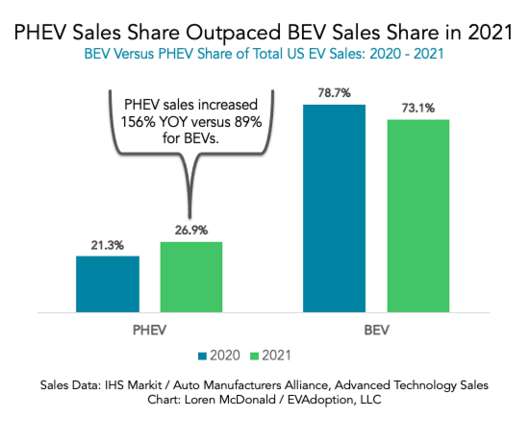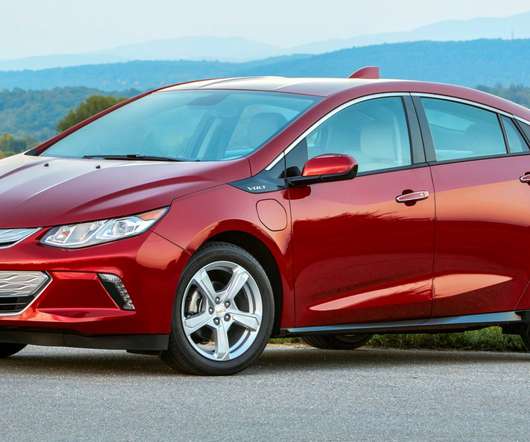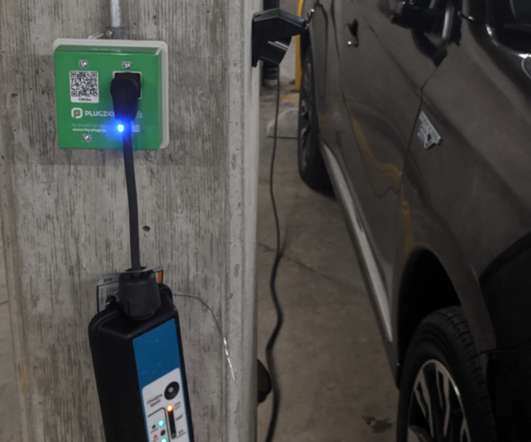Hybrid vs PHEV vs EV | Types of EVs Explained
Setec Powerr
DECEMBER 6, 2022
It doesn’t hurt to know some of the terminology used in electric vehicles. For example, what is a hybrid vehicle, PHEV, or EV, and what are the differences between them and their advantages and disadvantages? Common examples of hybrid cars are: the Honda Accord Hybrid, the Lexus RX 450h and the Toyota Prius.





















Let's personalize your content